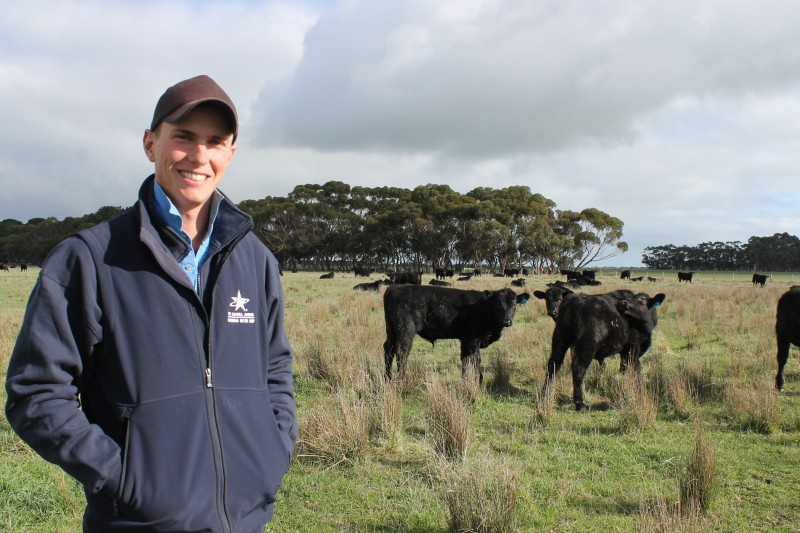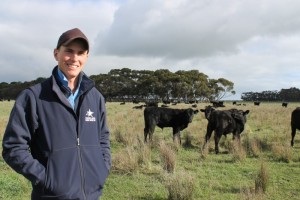
Laura Griffin, Stock and Land
Ferghal Berry, 25, said during the 12 months he has spent as the pasture and livestock overseer at Te Mania’s Mortlake operation, he has learnt so much about cattle breeding, pasture management, working with contractors and advisors, and being organised to ensure everything comes together.
For Ferghal, the most thrilling part of being the pasture and livestock overseer at Te Mania’s Mortlake operation is managing yearling bulls in mobs of more than 350-head.
“It’s the most challenging part of the operation but also the most exciting, and I wouldn’t be managing bull mobs of that size anywhere else in the country,” the 25-year-old said.
Mr Berry said running bulls in large mobs for the first year allowed Te Mania’s owners, the Gubbins and McFarlane families and their staff, to evaluate the bulls’ performance, and hence their genetic merits, as they were all subject to the same conditions.
“They are treated exactly the same from birth, so the performance information we get is not biased by environmental factors,” he said.
Mr Berry has held the position at Te Mania for 12 months, and said it was a more complicated operation than the commercial farms on which he had previously worked.
“It’s always busy here, the days are never long enough,” he said.
The November joining period is a particularly busy time on the farm.
The breeding program consists of two rounds of artificial insemination (first is a fixed time, the second is a heat detection) and a follow up natural joining.
“Most of the joining decisions are made by computer, so each animal on the property has EBVs recorded and a program matches the females with a sire for the best joining available,” Mr Berry said.
“There is a record made of every joining and the stream of information starts then.”
The 3000-hectare Western District site fits into Te Mania’s operation that also includes sites at Connewarre (mostly used for Te Mania Angus bulls) and Mansfield (mostly for embryo transfer work).
Cows calve down in August and September.
At the Mortlake site, Mr Berry looks out for the 1400-1500 breeders plus young stock, and 200 two-year-old bulls.
He moves the stock regularly so the animals are able to rotationally graze the pastures that are a mix of rye, clover, fescue and phalaris.
He said the soils at Mortlake benefitted from inputs, and last month the annual application of compost was spread over about 2500ha. They also do a liquid fertiliser application for the silage crop.
“We work to improve the biological content of the soil,” he said.
“It’s one way we look out for the environment to ensure the farm is run sustainably.”
A big challenge of farming at Mortlake is the lack of summer rainfall, which sees Mr Berry and other staff feeding out the hay and silage they’ve made.
Before Mr Berry jumped at the opportunity to work with one of the cutting edge Angus operations in Australia, he worked on a commercial King Island beef farm run by Sustainable Agriculture Fund for nearly two years.
With three other full-time workers, they ran 6000 breeders on well-fertilised rye pastures that were supported by reliable rainfall.
The seeds of a career in agriculture were planted very young for Mr Berry. He was born in Scotland and his mother is a vet and father an agricultural chemist.
The family moved to Longreach, Queensland, when Mr Berry was eight-years-old after his parents fell in love with Australia while on holiday.
He completed a Bachelor of Agriculture at University of New England, Armidale, NSW, and then worked at a nearby farm for 10 months, before he secured the job on King Island.
In his budding agricultural career, Mr Berry has found his mentors (Tas Loane and Chris Flemming at King Island and Tom Gubbins at Te Mania) invaluable.
“I can suggest ideas with Tom, although a lot of the really great things they do here have been going on for years.”
He said there were plentiful opportunities for young people to learn, for example he found a two-day low stress stockhandling course with Nick Kentish “very beneficial”, and the two weeks spent in Sydney as part of the Woolworths Agricultural Scholarship helped his personal development.
“With agriculture, as with most other careers, you’ve got to be realistic about starting at entry level jobs and then you have to work hard,” he said.
“But I enjoy working outdoors and with animals and I would go crazy if I were couped up in an office.”
Mr Berry’s goal is to, one day, have his own farm, and his experiences managing pastures and livestock, as well as working with contractors and advisors, is putting him on a strong path to achieve it.

